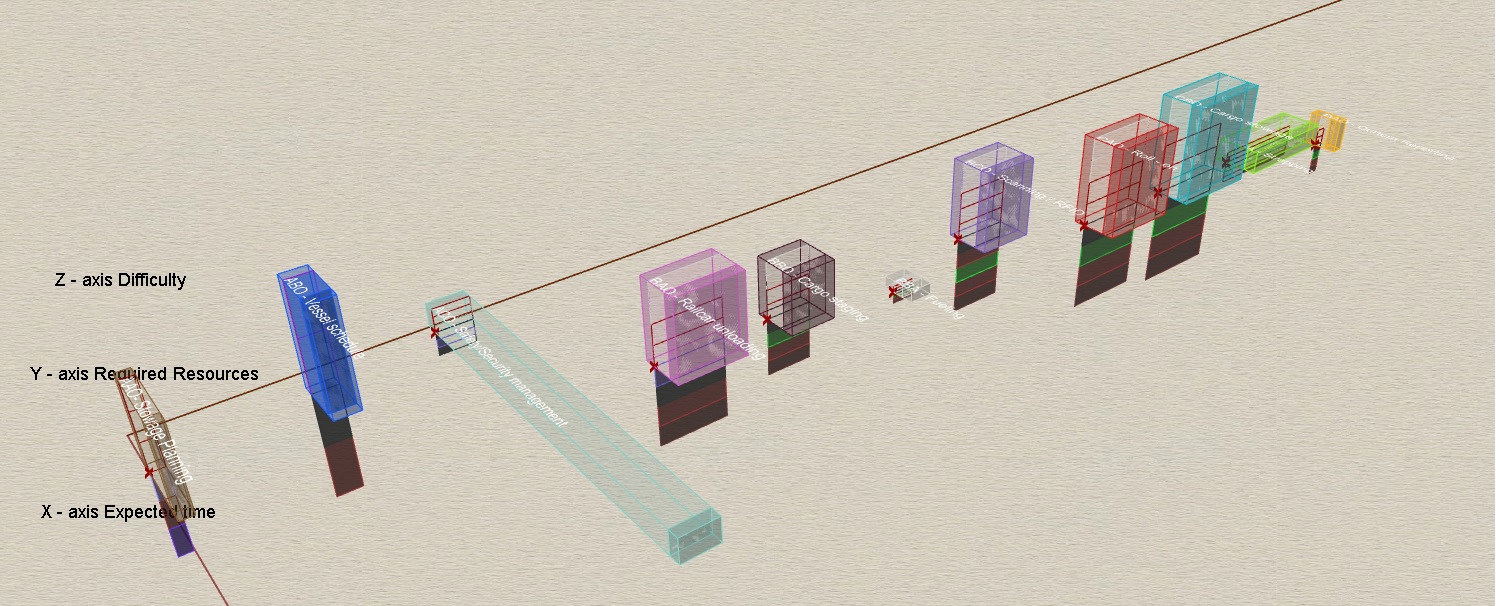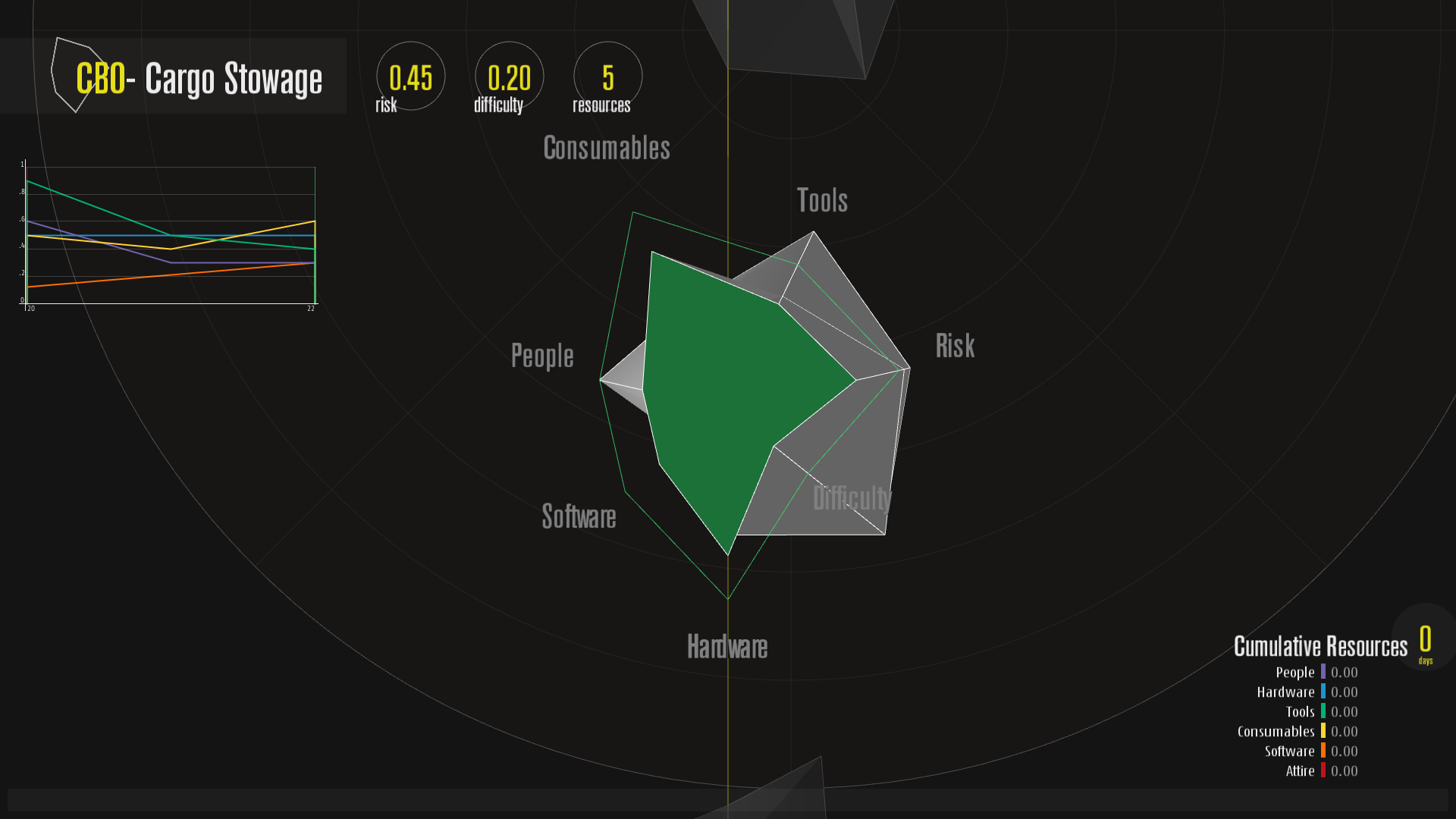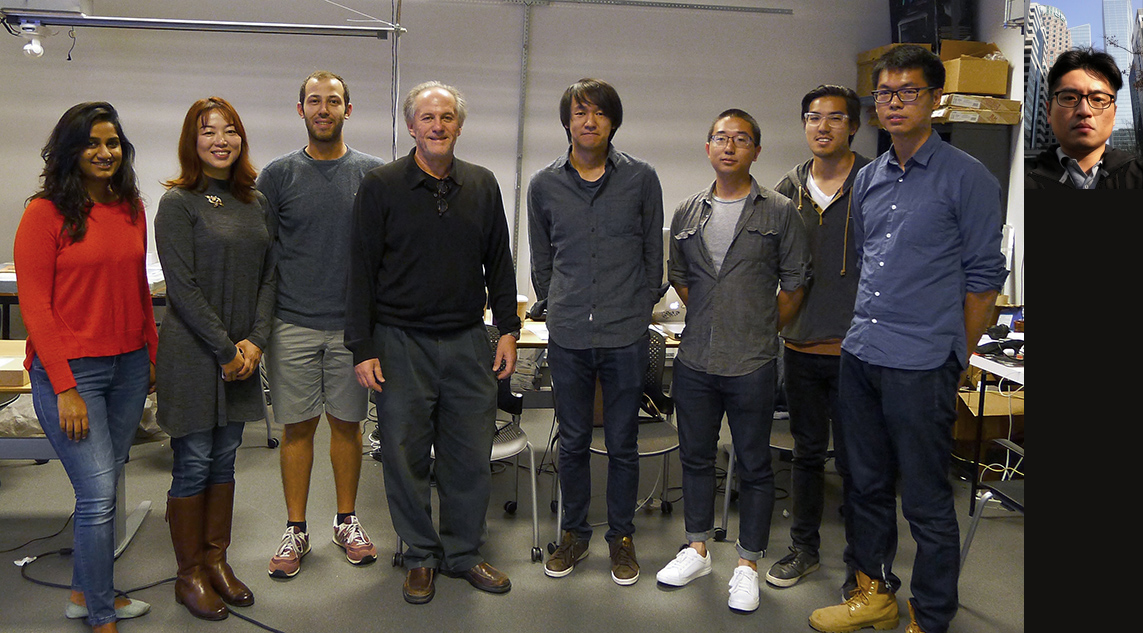2016Fall
Instructor
M594GL: Special Topics Production
George Legrady
ExpVisLab - 2611 Elings Hall , Triday 10am-2pm
Course Description
Design an interactive visualization prototype of a task analysis application to demonstrate innovative methods of creating, manipulating, and viewing task analysis details related to schedules, plans, processes and resource status for a 1-3 year mission planning.
The project will explore principles of how to feature hierarchichal task analysis based on: time, resource complexity, skillset valuation, dependency, definition, simulation, collected data. Challenges:
How much information to present simultaneously
How to visualize anomalies, resource conflicts and or high-risk situations
What are most valued controls for visualization?
How to feature relationships of “overview” and “detail-on-demand”

Visualizing Task Analysis using a Graphical Algorithm Editor Intae Hwang

Task Analysis Design Mert Toka

Visualizing Task Analysis | [Interactive demo] Ambika Yadav
Inspection

Inspection is a project that explores the boundaries between physical and virtual world by creating continuously evolving virtual 3d photomontage as a response to the physical world, where a drone, a ground robot, and eight ultrasonic sensors function as a reactive collective system to connect the two worlds.
Each contributor's efforts can be reviewed by clicking on the following links:
Inspector Project Management - Rodger Luo
Sensor Array Designer - Christopher chen
Apparatus of Inspection - Mengyu Chen & Dan Wang
System Design / Drone Software and Web Server Development - Weihao Qiu

The course is designed to be self-directed (DIY). Following the warm-up simple and depth projects, each student will prepare a project concept which they will realize in the course. Completion of the course includes 1) project conceptualization, 2) project realization, 3) project documentation for the course website - All students will be expected to perform at the level of their expertise.